Home » Treatment Programs » Inpatient Rehab: Residential Rehab for Drugs & Alcohol
Inpatient Rehab: Residential Rehab for Drugs & Alcohol
- Authored by Joe Gilmore
- Clinically Reviewed by Jenni Busse
- Last Updated 04/10/2024
- By Joe Gilmore
- Reviewed by Jenni Busse
- 04/10/2024
Build a foundation for sobriety
WHAT IS INPATIENT Drug And Alcohol REHAB?
Inpatient rehabilitation is a residential addiction treatment center, if you are not sure what is residential rehab, it is a live-in facility during your time in substance abuse treatment. You’re provided with a safe environment that has trained staff to help guide you through the first steps in your recovery journey. After completing a detox process, if necessary, you can begin inpatient treatment where you’ll have a structured day and take part in individual and group therapy to address issues that may be underlying the addiction, get accustomed to attending meetings and to begin rebuilding responsibility.
Inpatient rehab stays last an average of 30 days, though a stay can last anywhere from 7 days to more than 90 days, depending on the severity of the addiction and mental health history. During this time, you’ll also partake in activities to form healthy new habits and build social connections. Family counseling and activities are also available, which can help your family get involved with the recovery process and make it easier to recover without a relapse.
Our Inpatient Rehab
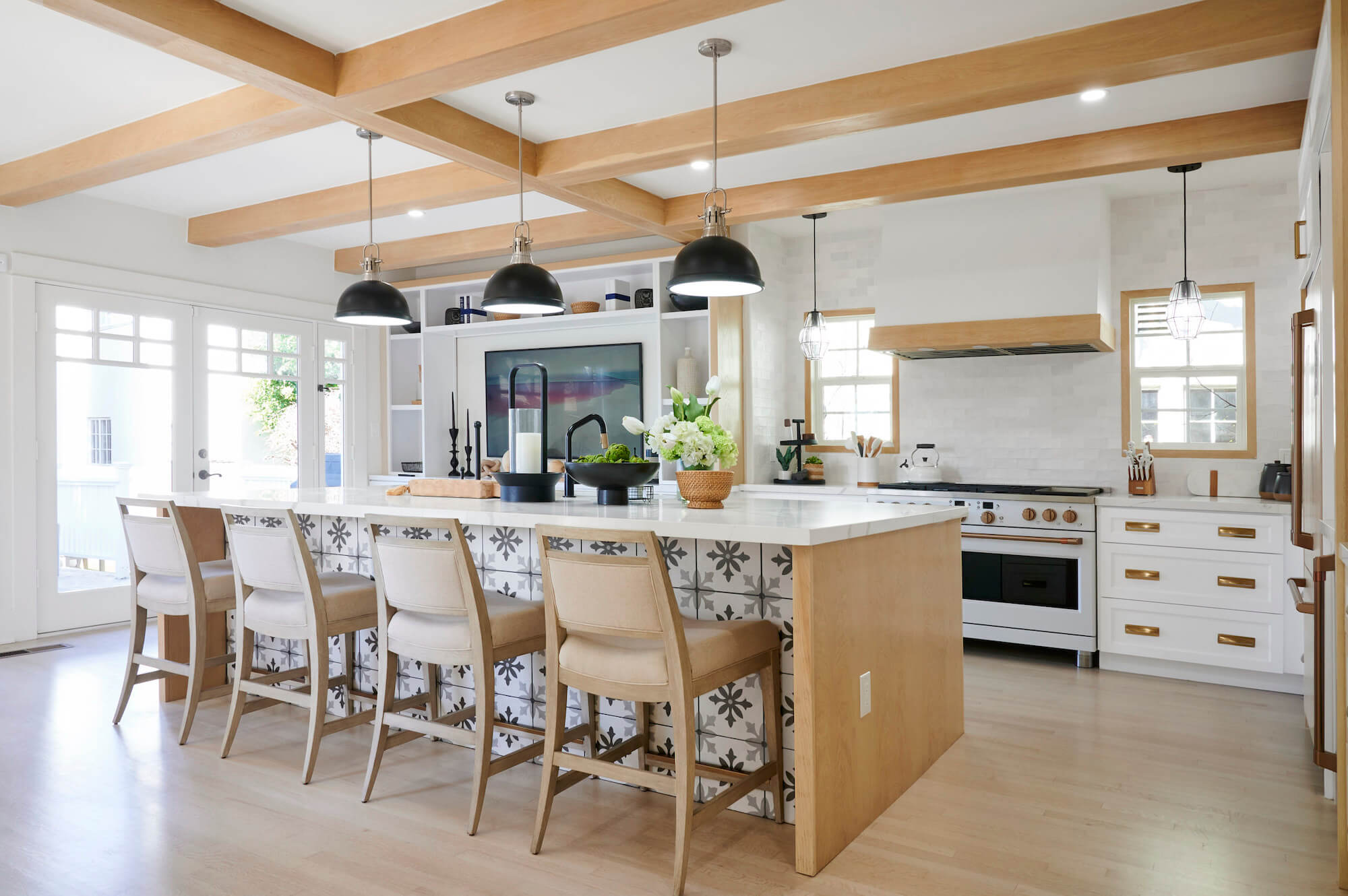


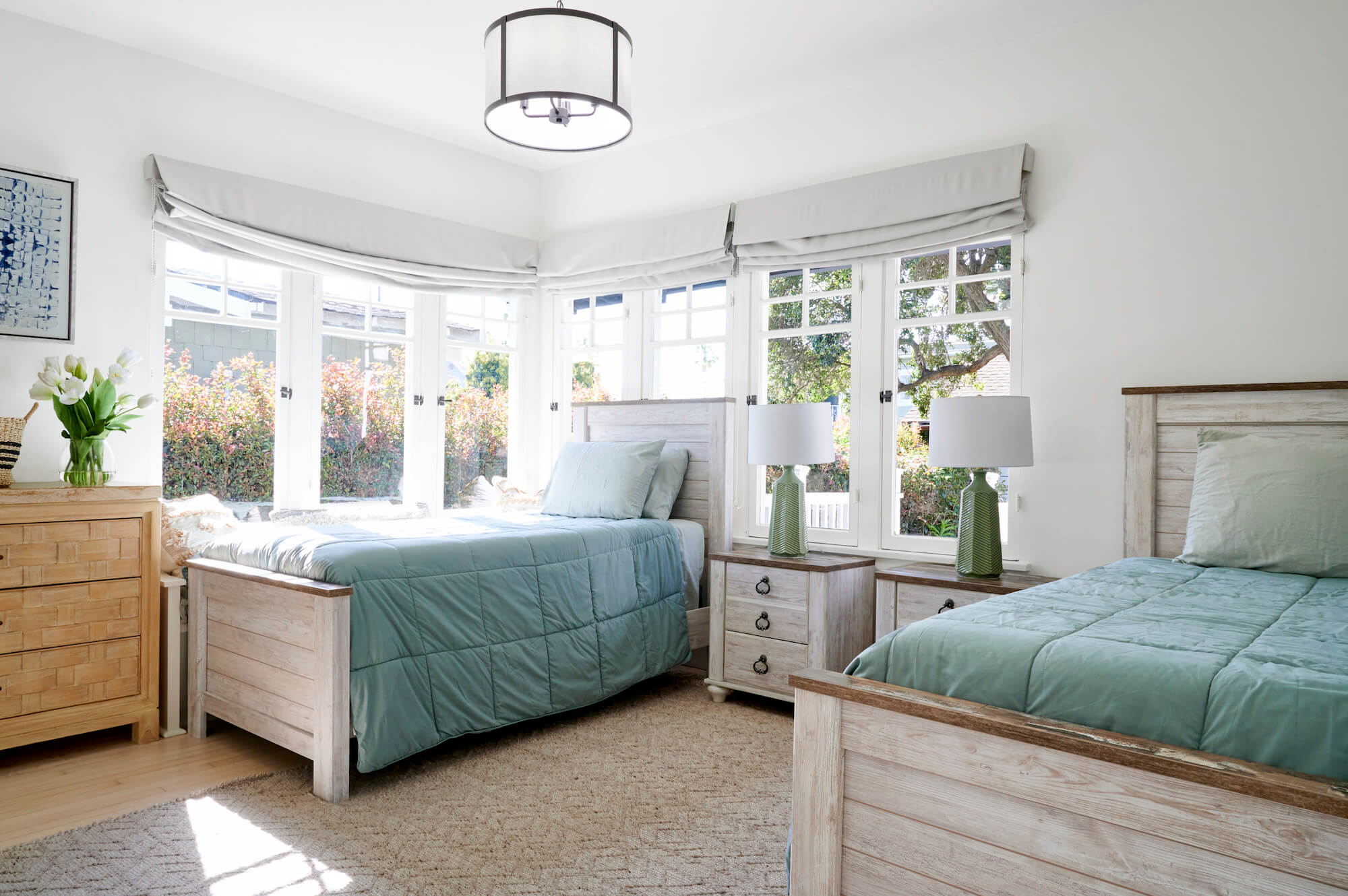
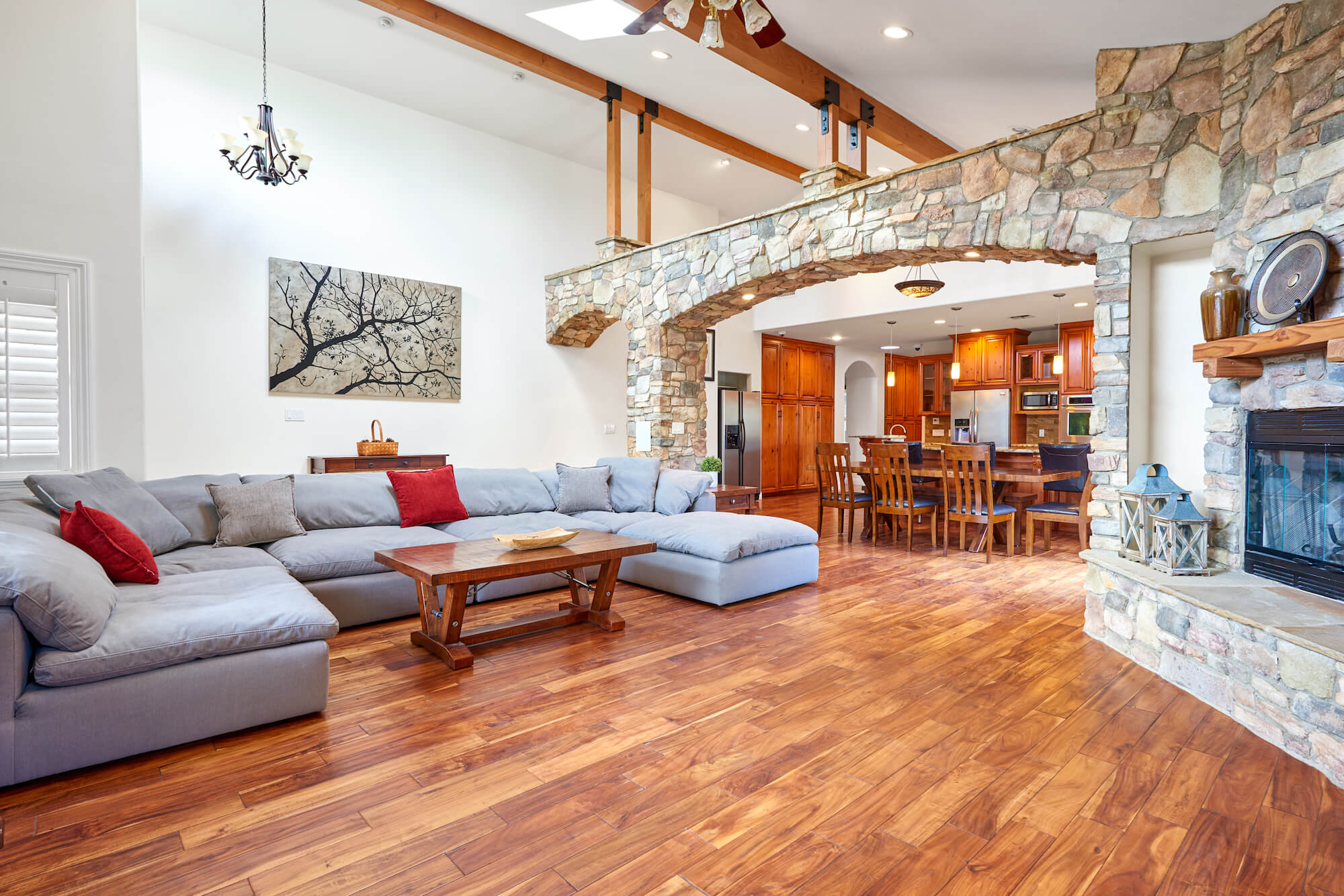

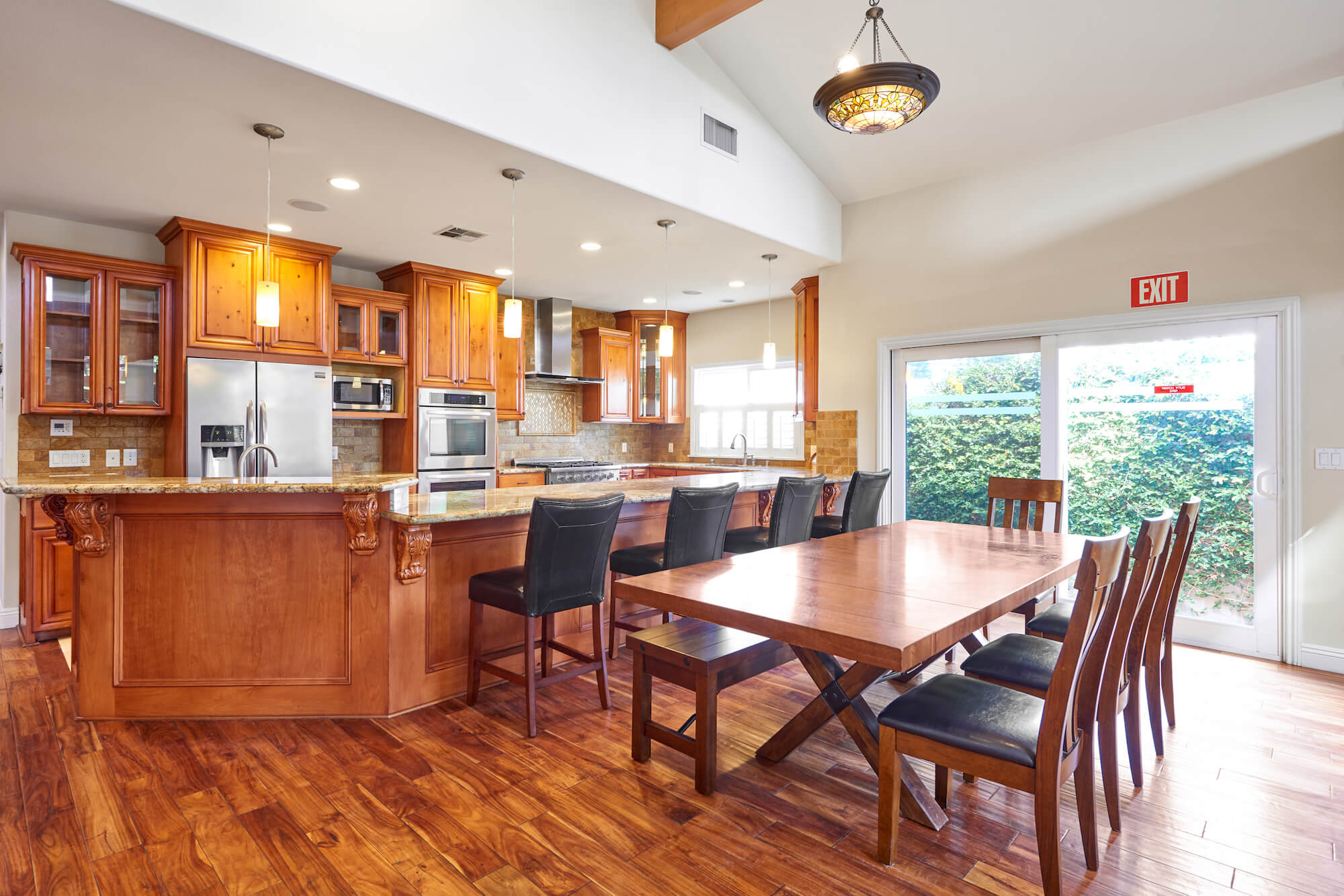
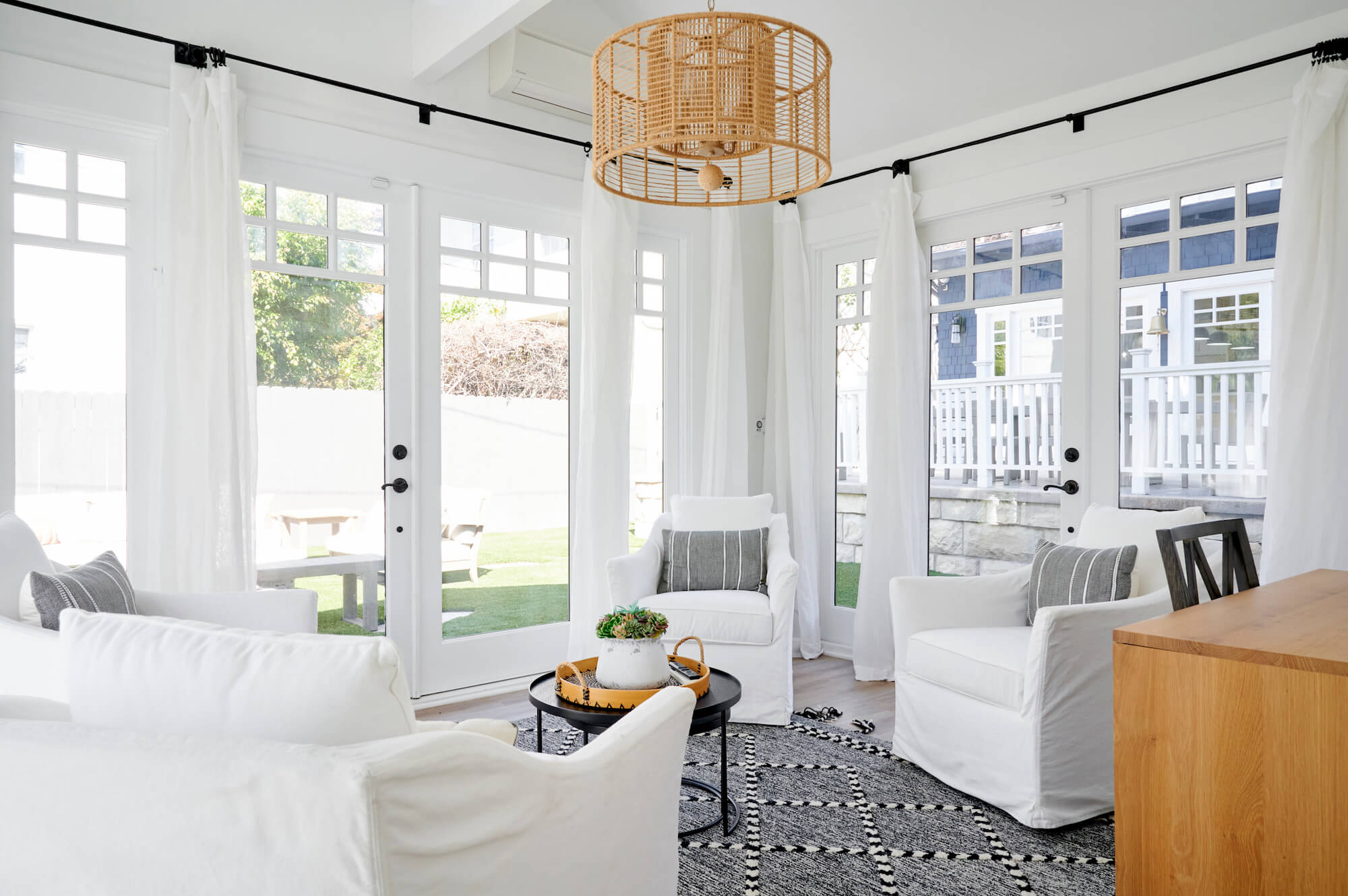

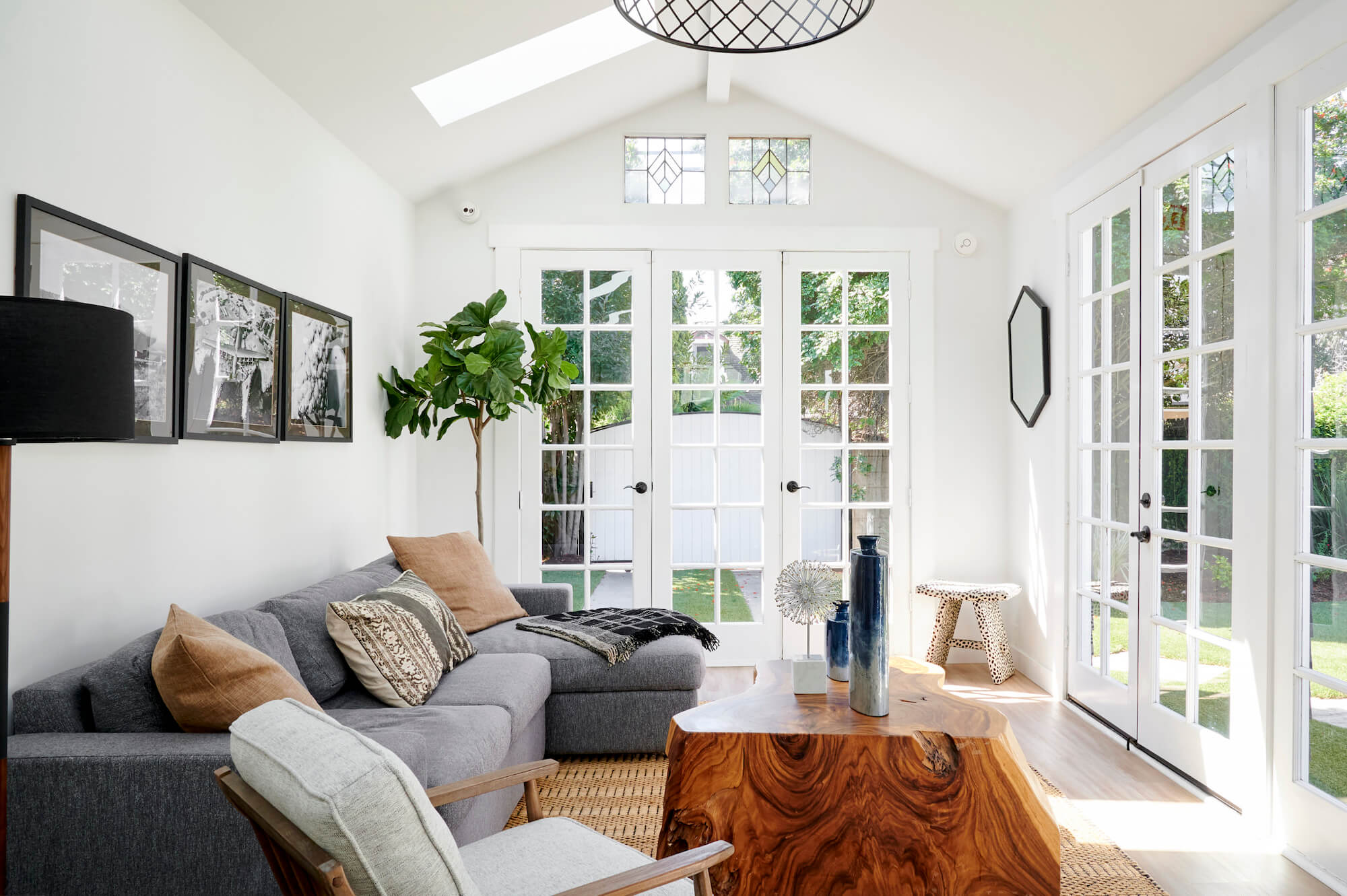
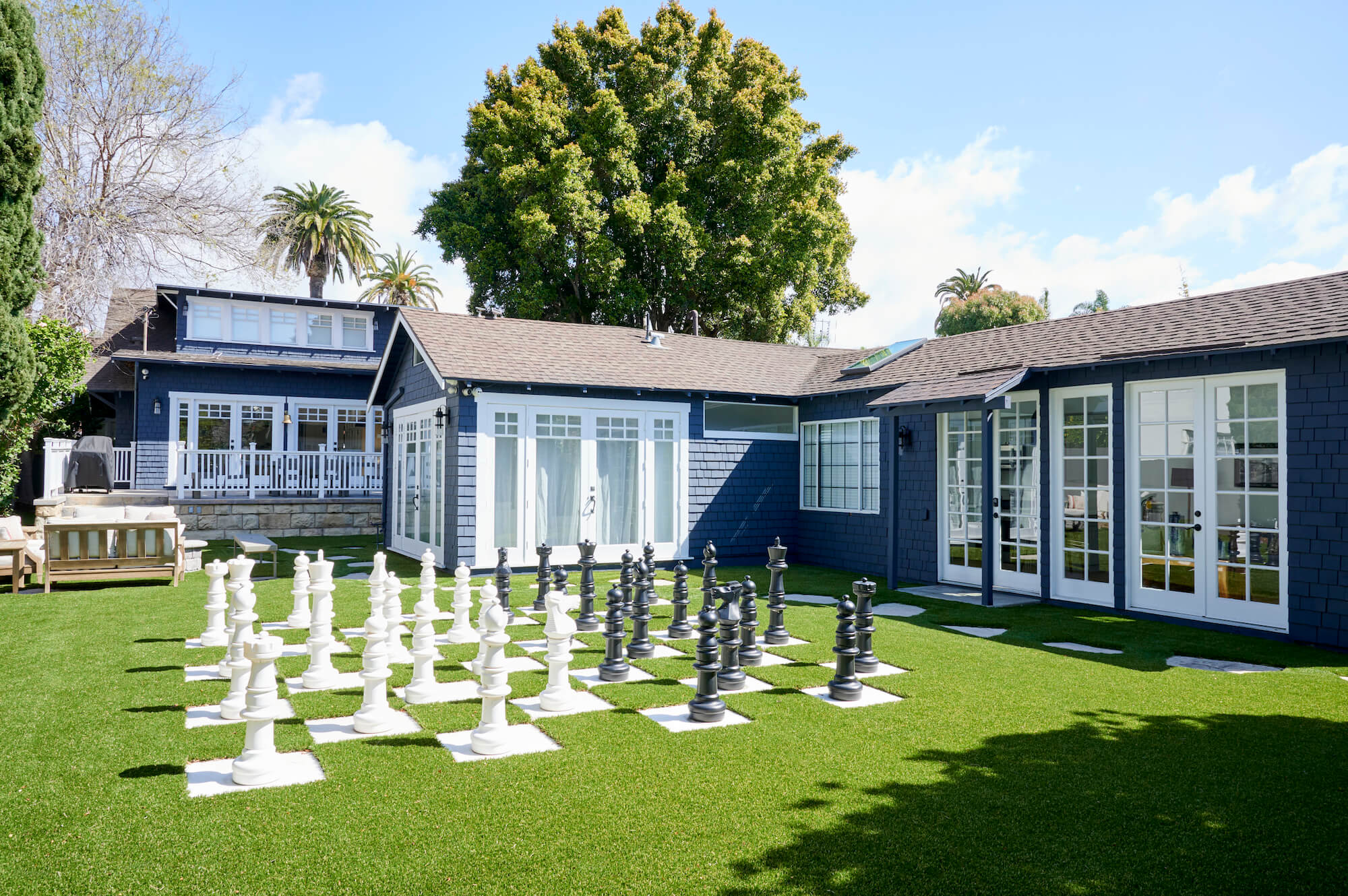
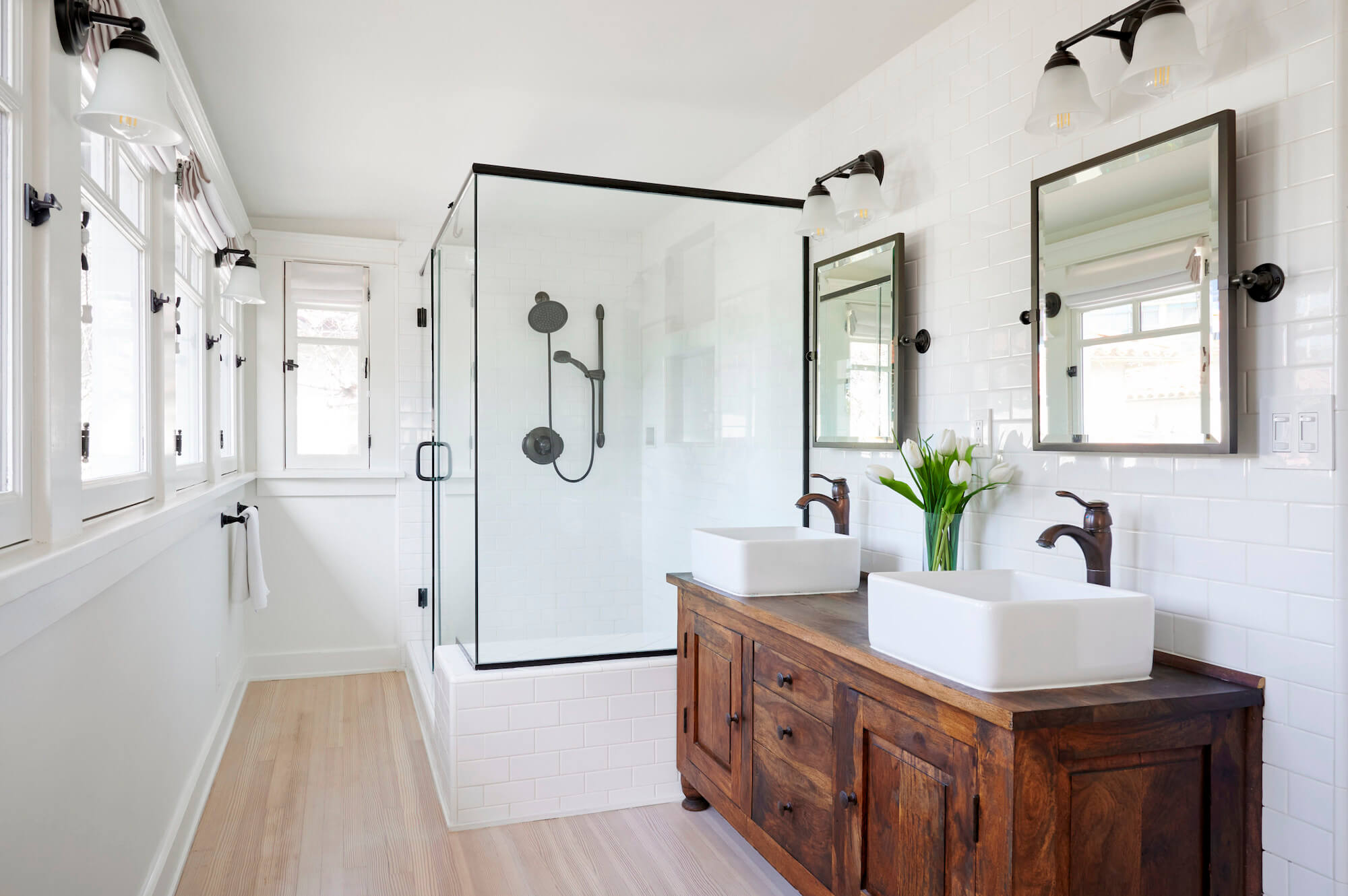

Take a look at some of the photos of our beautiful facilities in Newport Beach and Long Beach.
At our luxury inpatient rehab programs we offer:
- Amazing amenities
- Great locations near the beach
- A family-like environment
- A stocked kitchen with food, drinks, and snacks
- Outdoor areas
- A comfortable living enviroment
- Access to TVs
- and much more













HOW DO YOU CHOOSE AN INPATIENT REHAB PROGRAM?
When you’re looking for the best inpatient rehab program, this decision can greatly impact your recovery journey. There are many factors that can influence this selection process.
First, research the treatment philosophy of the rehab and ensure that this aligns with your goals and beliefs.
You should consider rehab centers that are licensed and accredited by organizations like CARF (Commission on Accreditation of Rehabilitation Facilities) or The Joint Commission.
Ensure that the treatment center employs an experienced and qualified clinical team. This includes doctors, therapists, counselors, and support staff.
It is imperative that any residential rehabs on your shortlist offer inpatient programs that provide enough time for you to initiate your recovery. The most common inpatient programs are 30-day inpatient rehabs, 60-day rehab programs, and 90-day programs.
Due to the high relapse rates of addiction, all reputable inpatient rehabs will include a comprehensive aftercare component in treatment.
If you intend to cover the costs of inpatient rehab with insurance, check that the treatment centers on your shortlist accept your insurance. Alternatively, ask for an estimated cost of treatment if you plan to pay for treatment out of pocket.
When you have all these elements in place, consider the location of the inpatient rehab, the general environment, and the amenities and activities offered.
How Long is Inpatient Rehab?
If you are wondering how long is inpatient rehab, it important to understand that all inpatient rehab programs are a bit different. However, most inpatient treatment centers will typically have a 30-day length of stay. This will include a detox program at the beginning of treatment that often lasts up to 7 days.
That said, extended stays are available to those that need it and who qualify for these programs.
If you are interested in learning more about Gratitude Lodge’s inpatient rehab program in Long Beach and Newport Beach, contact our team today and learn more about our treatment offerings and how we can help you or your loved one overcome substance abuse.
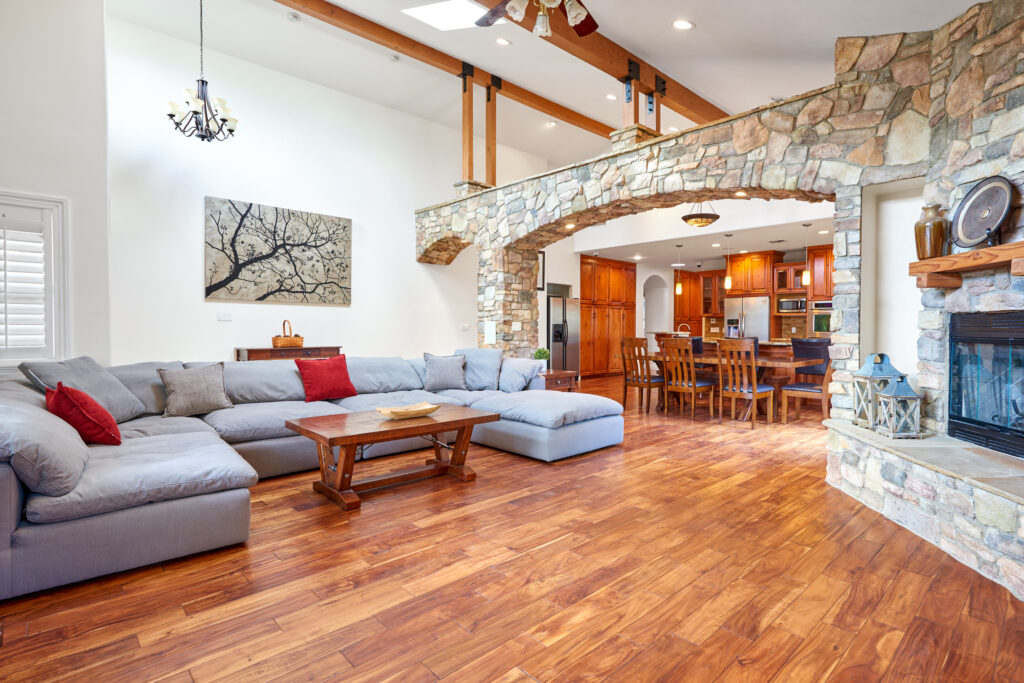
Our 30-Day Inpatient Rehab
At Gratitude Lodge’s 30-day inpatient rehab programs we utilize an evidence-based treatment methods combined with adopt a holistic approach to treatment, addressing all aspects of a person’s health and wellbeing. Our evidence-based treatment offerings will include things like:
- Cognitive behavioral therapy
- Dialectical behavior therapy
- Individual counseling
- Support groups and group counseling
Holistic therapies at residential rehab aim to promote healing on all levels, physical and mental, as well as emotional and spiritual.
Some of the most popular holistic interventions used in drug and alcohol rehab include:
- Yoga
- Acupuncture
- Meditation
- Mindfulness
All of these practices can help to reduce stress levels and promote relaxation, crucial for those in recovery from addiction.
The two combined efforts of evidence-based treatment and a holistic approach allow our staff to treat each client individually and ensure that they are getting the proper care and attention that is relevant to their unique situation.
LUXURY FACILITIES
Our comfortable environment, luxurious accommodations, and shared spaces help patients get into a positive mindset that encourages growth and communication.
12-STEP INTEGRATED
Our program encourages clients to find sober social support through providing access to a variety of 12-step recovery resources. Client’s are encouraged to find a sponsor or mentor to receive support and accountability as they progress in their sobriety.
INTENSIVE TREATMENT
Our intensive treatment provides additional support in the facility for individuals who need 24/7 care. Daily individual counseling is available, along with group therapy and other activities.
What are the Benefits of Inpatient Rehab?
Going to an inpatient rehab may seem a bit overwhelming at first but learning about the many benefits of inpatient addiction treatment can help you understand why it might be the best decision for yourself or your loved one.
Surrounding yourself with positive influences and others who are on the same journey will help prevent relapse.
Clients at Gratitude Lodge can rest easy knowing that their individualized treatment plans are created by addiction experts as well as people who have been through addiction recovery themselves. Our clinical team is led by Jenni Busse MS, LPCC who has 14 years of experience in the industry working as a licensed therapist and primarily helping treat clients in detox and residential treatment. Along with the clinical team, our executive team is led by Founder Mark Williams, who has been sober since 2007. Mark founded Gratitude Lodge as a way to give back to people struggling with addiction, as a tribute to others that saved his life and helped him with his recovery journey.
During treatment, clients will have the opportunity to engage in a number of fun and rejuvenating activities that can be conducive with their sobriety as well as personal growth. Some of these include things like:
- Fitness and Yoga
- Reiki
- Outdoor activities
- Fun group outings from time to time
While in treatment, clients will live and work together with others who are also in the recovery process as they all learn more about addiction and provide support to one another as they work to commit to their goals of long-term recovery.
Get Help at Gratitude Lodge's California Inpatient Rehab
If you’re looking for a luxury inpatient rehab program in Southern California, Gratitude Lodge has a number of locations in both Newport Beach and Long Beach. We work hard to ensure that all of our clients are given the tools and knowledge they need to set them up for long-term success.
Learn more about how our treatment program can help you and what an individual treatment plan may look like for yourself or your loved one.

INPATIENT REHAB FAQS
The goal of inpatient rehab is to help those with substance abuse issues to overcome physical dependence and addiction. Inpatient rehab provides a structured and supportive environment where you can improve your physical and mental health as you discover how to use healthier coping mechanisms in place of addictive substances. Learn how to achieve and maintain your sobriety with an inpatient rehab program.
Rehab for drug addiction and alcoholism involves engaging with structured behavioral and pharmacological therapy at an inpatient or outpatient rehab center. Rehab provides those with addictions with a safe space in which they can learn how to address the physical and psychological components of dependence and addiction.
A holistic approach to treatment is based on the belief that the mind, body, and spirit are all interconnected. With a holistic approach, more focus is placed on the underlying causes of a condition rather than the symptoms of the condition. In an addiction recovery context, the approach often involves a variety of treatments such as mindfulness, meditation, and yoga. Holistic treatment for addiction is often used to supplement evidence-based treatment such as MAT (medication-assisted treatment), counseling, and talk therapy (psychotherapy).
Yes, you can wear your own clothes in rehab. Avoid clothing that is too revealing or emblazoned with inappropriate imagery. Aim for loose and comfortable clothing. Contact any rehabs on your shortlist to clarify any restrictions on clothing.

















